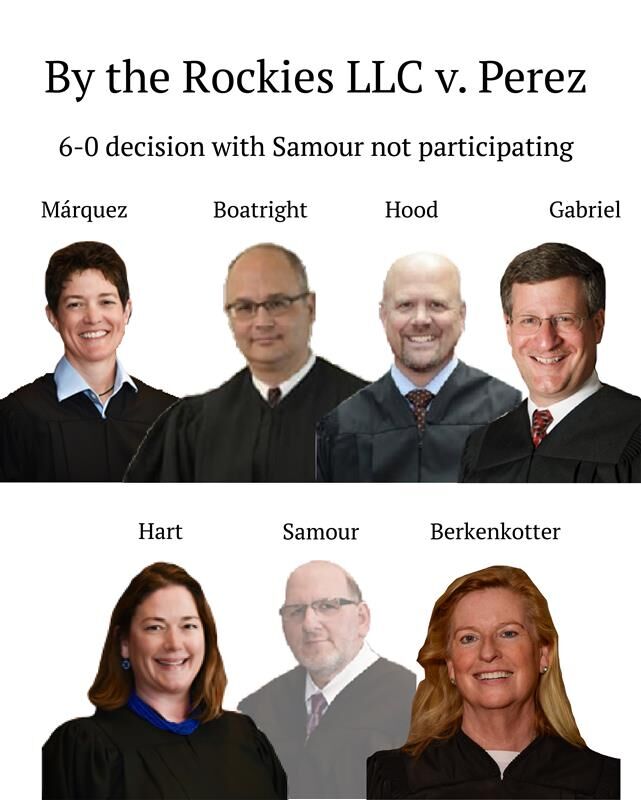Colorado justices decide shorter timeline applies to lawsuits alleging minimum wage violations

The Colorado Supreme Court ruled on Monday that plaintiffs alleging their employer violated the state’s minimum wage law have up to three years to file a lawsuit and not, as the appeals court believed, six years.
With Colorado’s Minimum Wage Act silent on the subject, the justices were confronted with two options:
- A worker could have two or three years from the violation — depending on whether the employer acted willfully — to file suit, as is the case for claims under the neighboring Colorado Wage Claim Act
- Or a worker could have up to six years to sue, which is the catch-all window for recovering a debt
Justice Maria E. Berkenkotter, in the court’s Sept. 15 opinion, wrote that the shorter window made the most sense.
“In the absence of any clear intent to the contrary, statutes that are part of a single scheme or that deal with the same subject should be construed harmoniously, to avoid absurdities,” she explained. “Here, the Wage Claim Act and Minimum Wage Act are part of the same statutory scheme that addresses the payment of wages. Both acts share the same purpose: allowing for the recovery of unpaid wages. We accordingly construe the acts together.”

In the underlying case, Samuel Perez filed a proposed class action lawsuit against his employer, By the Rockies, LLC, for allegedly refusing to pay its Carl’s Jr. employees for required breaks. Perez sued in 2022, despite having left his job in 2017. After looking at competing legal interpretations by federal judges in recent years, an Arapahoe County judge dismissed the case, persuaded that Perez filed his claims too late.
However, a Court of Appeals panel noted the Wage Claim Act explicitly includes a two- or three-year statute of limitations, but lawmakers omitted similar language from the Minimum Wage Act. Therefore, the catch-all six-year window applied for raising alleged minimum wage violations.
Judge Neeti V. Pawar, who authored the majority opinion for herself and then-Judge David Furman, observed during oral arguments there may be valid reasons to treat claims for unpaid minimum wages differently than other wage violations.
“If somebody doesn’t get paid on the day they don’t get their rest break, they’re not gonna file a claim for $1.12,” she said. “Doesn’t it seem like six years would make more sense in order for the accrual of the claim itself to have some value?”

Judge Terry Fox dissented, writing that the majority’s interpretation drove a wedge not only between the two wage laws, but between Colorado law and its federal counterpart.
By the Rockies appealed to the Supreme Court, supported by outside business entities. The national and state chambers of commerce argued a six-year statute of limitations was inconsistent with the three-year recordkeeping requirement for employers.
“Sometimes the simple answer is also the right answer,” added attorneys for the state’s hotel and restaurant trade associations. “Rather than try to make the statute of limitations for claims arising under the Minimum Wage Act different from the statute of limitations for claims arising under the Wage Claim Act, the simplest and clearest solution is that they should be the same.”
Berkenkotter, in the Supreme Court’s opinion, noted the fact that both wage laws address the same basic right to wages was an indication that the statute of limitations should be harmonized. Moreover, a two- or three-year window would align with regulatory recordkeeping requirements and federal labor law.
“We note, as well, that Perez’s approach would allow a plaintiff to reach back only two years for wage claims under the Wage Claim Act but six years for minimum wage claims under the Minimum Wage Act, which would be illogical,” she concluded.
Justice Carlos A. Samour Jr. did not participate in the decision. As is the Supreme Court’s practice, he provided no explanation. It was also unclear when he recused, as none of the court’s orders in the case indicated any abstentions prior to the oral arguments.
The case is By the Rockies, LLC et al. v. Perez.













